
Staff Reporter


World's Largest Living Crocodile in Captivity Might Surpass Previous Measurements, Having Grown Since 2011 Assessment
Dinosaur-Era Fish Choked on Oversized Ammonite That Led To Its Fatal Death, Fossil Discovery Reveals
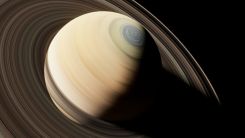
Saturn's Megastorms Lasting for Hundreds of Years Can Envelope Entire Planet, Leave Puzzling Chemical Anomalies
Powerful Magnetic Fields of Cool Stars Could Render Exoplanets Uninhabitable, Study Reveals
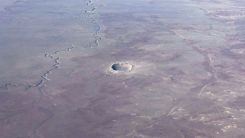
515-Kilometer-Wide Asteroid Crater Found Beneath Australia Could Be Largest Ever Known on the Planet
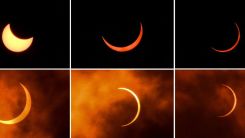
Annular Solar Eclipse 2023: North America's First 'Ring of Fire' To Be Visible From Eight US States; Here's How To Watch

Can Recycling Plastic Cutlery Help the Planet? Here's What To Do To Reduce Takeout Carbon Footprint
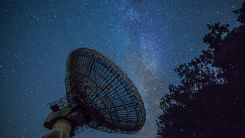
Astronomy and Physics' Top 10 Most Peculiar Terminologies: Which Are the Quirkiest Ones?

Why Is There Always Room for Dessert Even After a Hearty Meal? Unveiling Satiety's Sweet Temptation
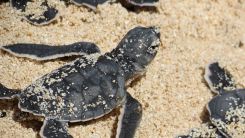
Baby Sea Turtles Embark on Their Journey: Tale of Survival and Resilience

Engineered Bacteria Via CRISPR Technology Could Hold Key to Detecting Cancer Cells in Unlikely Places
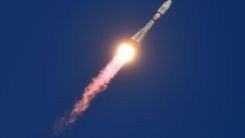
Russia Resumes Lunar Ambitions with Launch of Luna-25 Mission, Entering Moon Race Alongside India
New Species of Blind, Colorless Daddy Longlegs Spiders Found in Australia's Arid West and Réunion Island

Sloth's Remarkable Defense Against Ground Predator Caught on Camera in the Amazon

What Is the Nobel Prize? Understanding Its History, Significance, and Notable Winners
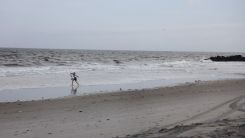
First in 65 Years Shark Attack in New York City's Rockaway Beach: Victim Now in Stable Condition
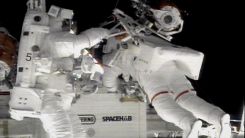
Russian Cosmonaut's Historic Spacewalk Completes First Test Flight at the End of Robotic Arm at International Space Station
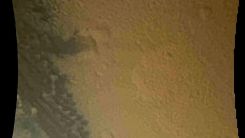
Hexagonal Patterns on Mars Suggest Cyclic Wet-Dry Periods, Potentially Favorable for Life's Emergence
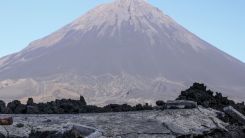
Gaseous Carbon Dioxide Emerges as Surprising Instigator for Volcanic Eruptions, Offering Clear Picture of Earth's Internal Dynamics

Is Gold From Earth or Space? Exploring the Origins and Evolution of this Precious Metal

Innovative Virtual Reality Tech Developed in the UK Used in Addressing Elderly Loneliness and Enhance Wellbeing
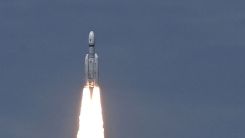
India's Chandrayaan-3 Spacecraft Reveals First Moon Images Ahead of Anticipated Lunar Landing Attempt

AI Could Decode Keystroke Sounds From Zoom Audio With 93% Accuracy, Raising Cybersecurity Concerns
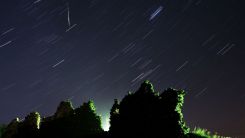
Kansas Stargazers Anticipate Spectacular Views: 2023 Perseid Meteor Shower Shines Bright With Lunar Advantage

What Is Disease X? Scientists Warn of Potential Global Pandemic as UK Invests in Vaccine Facility
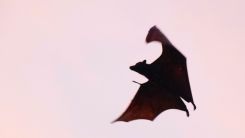
Bats Experience Reduced Activity at Solar Farms, Highlighting Need for Sustainable Energy Planning
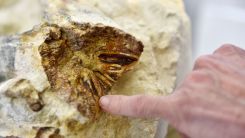
Ice Age Carving Reveals Bear-Like Ivory Figurine in Germany, With Head Previously Found From 35,000 Years Ago

SpaceX's Falcon 9 Launch on Starlink Mission Takes Off From Vandenberg Space Force Base, Carrying 15 Satellites
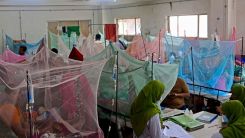
Crisis in Bangladesh: Unprecedented Dengue Outbreak Overwhelms Hospitals as Death Toll Soars
Most Popular

Persistent Coughs Are Everywhere: Here's What Experts Think Is Causing It

Ancient Hotspot Found to Have Created Great Lakes 300 Million Years Ago

Mysterious Structures Discovered Beneath the Pacific Ocean, Puzzle Scientists

Health Benefits of Drinking Hot Chocolate




